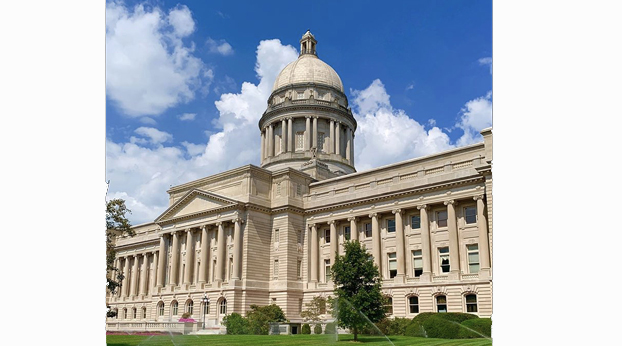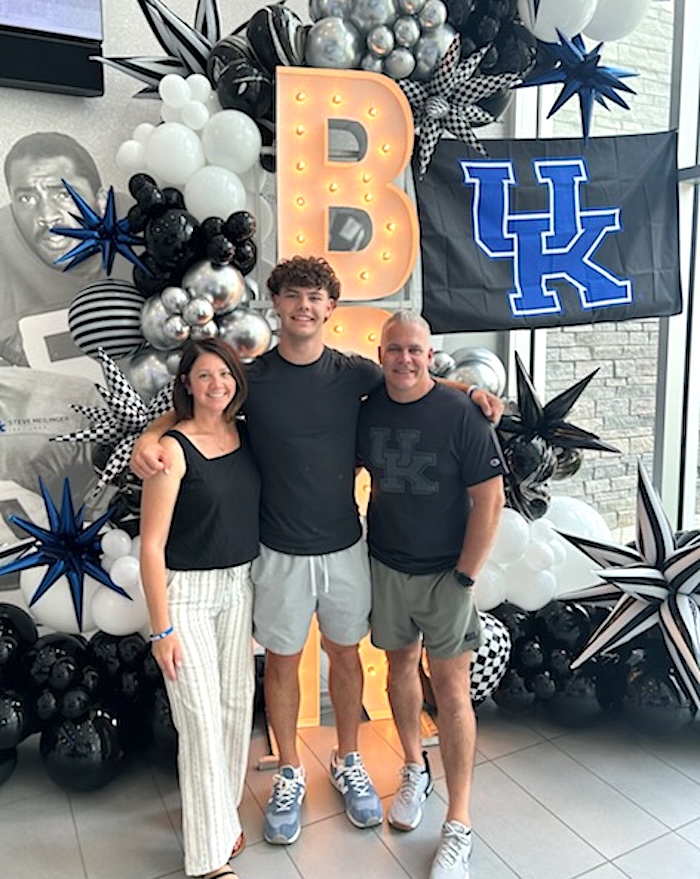House-approved bill asks voters to make clear: Noncitizens can’t vote in Kentucky
Published 10:53 am Wednesday, January 31, 2024
|
Getting your Trinity Audio player ready...
|
By Liam Niemeyer
Kentucky Lantern
A Republican-backed bill passed Tuesday by the Kentucky House of Representatives would ask voters to approve a constitutional amendment barring people who aren’t U.S. citizens from voting in state and local elections, something that Kentucky’s chief elections official says doesn’t happen.
Trending
House Bill 341 sponsor, Rep. Michael Meredith, R-Oakland, described the bill as “simple” legislation that would close a “potential loophole.”
The bill passed 81-15 on a largely part line vote.
“Voting rights in this state specifically and really in this nation should be reserved for citizens,” Meredith said. “That doesn’t say that anybody can’t go through the path to citizenship and gain those rights over time, and I’m certainly a proponent of that. However, I think most people believe that our elections should be controlled by citizens of this nation and not others.”
HB 341 now heads to the state Senate for its consideration. If passed into law, a ballot question asking voters to amend the state Constitution to “prohibit persons who are not citizens of the United States from being allowed to vote” in the state would be placed on this year’s general election ballot.
Already, residents who are not citizens, such as those with work visas, are barred from voting in federal and state elections, though at least 12 states allow noncitizens to vote in municipal elections, special district elections or both. Several states including Alabama, Colorado, Florida and Ohio in recent years have passed ballot initiatives prohibiting noncitizens from voting in local and state elections.
Kentucky Secretary of State Michael Adams, a Republican, told the Lantern he wasn’t aware of any jurisdiction in Kentucky that allows noncitizens to vote in local elections.
Trending
Several Democrats voiced their opposition to the bill, stating that such legislation wasn’t necessary, marginalized immigrants and prioritized a non-issue over other concerns.
“It’s essential we prioritize legislation that addresses the current pressing concerns we have today, rather than focusing on issues that do not pose a current significant threat,” said Rep. Chad Aull, D-Lexington. “We have no need for legislation such as this bill.”
Aull said the Republican-dominated House needed to instead focus on other “impactful” measures, pointing to Democrat-backed bills to extend votings hours and remove straight-ticket voting as a ballot option to “contribute to a more informed and thoughtful voting process.”
Rep. Nima Kulkarni, D-Louisville, said she believed the bill could make some families, specifically noncitizen parents with children who are U.S. citizens, feel unwelcome in Kentucky or the United States.
One Republican co-sponsor of the bill referenced his parents’ journey to becoming U.S. citizens in the 1980s as a part of his “very personal” reason for supporting the legislation. Rep. Killian Timoney, R-Nicholasville, said his parents surrendered their Irish citizenship so that they could participate in local school board elections and be more involved in their community.
“We’ve done so much to make sure our elections are true and pure,” Timoney said. “This is the next step there.”
Adams, the Republican secretary of state, said he doesn’t have a problem with HB 341 but that his office is neutral on the bill. He said he believes current law already bars noncitizens from voting.
“I don’t favor noncitizens voting in any election in Kentucky,” Adams said. “I think the goal behind this bill is to ensure that some aggressive or adventurous city doesn’t pass an ordinance that contradicts” the Constitution.
Lawsuits have been litigated in various states over allowing noncitizens to vote in local elections. The Vermont Supreme Court ruled in favor of the practice last year, and a New York judge in 2022 struck down a law that would have allowed noncitizens to vote in local elections in New York City.
Adams said given that only four constitutional amendments can be placed on each general election ballot, he wonders what competition to get on the ballot will be like among other proposed constitutional amendments being considered by the legislature. That includes an amendment that would curb a governor’s commutation and pardon powers and an amendment that would allow public funding for non-public chools.
House Speaker David Osborne told reporters Tuesday it’s hard to say what proposed constitutional amendments would make it onto the general election ballot and that conversations would be had with the Senate before amendments are passed by the legislature.
McKenna Horsley contributed to this story.






